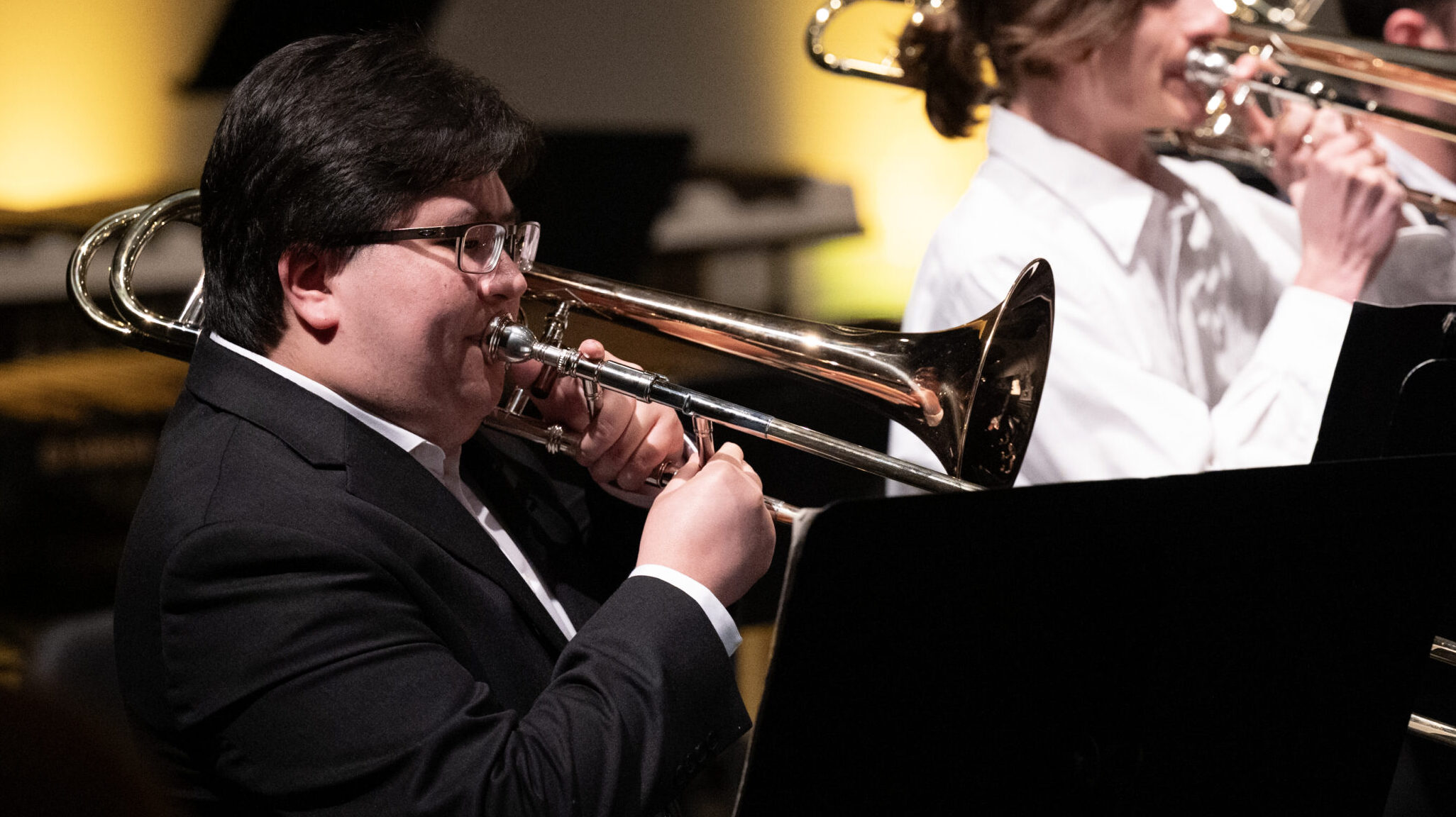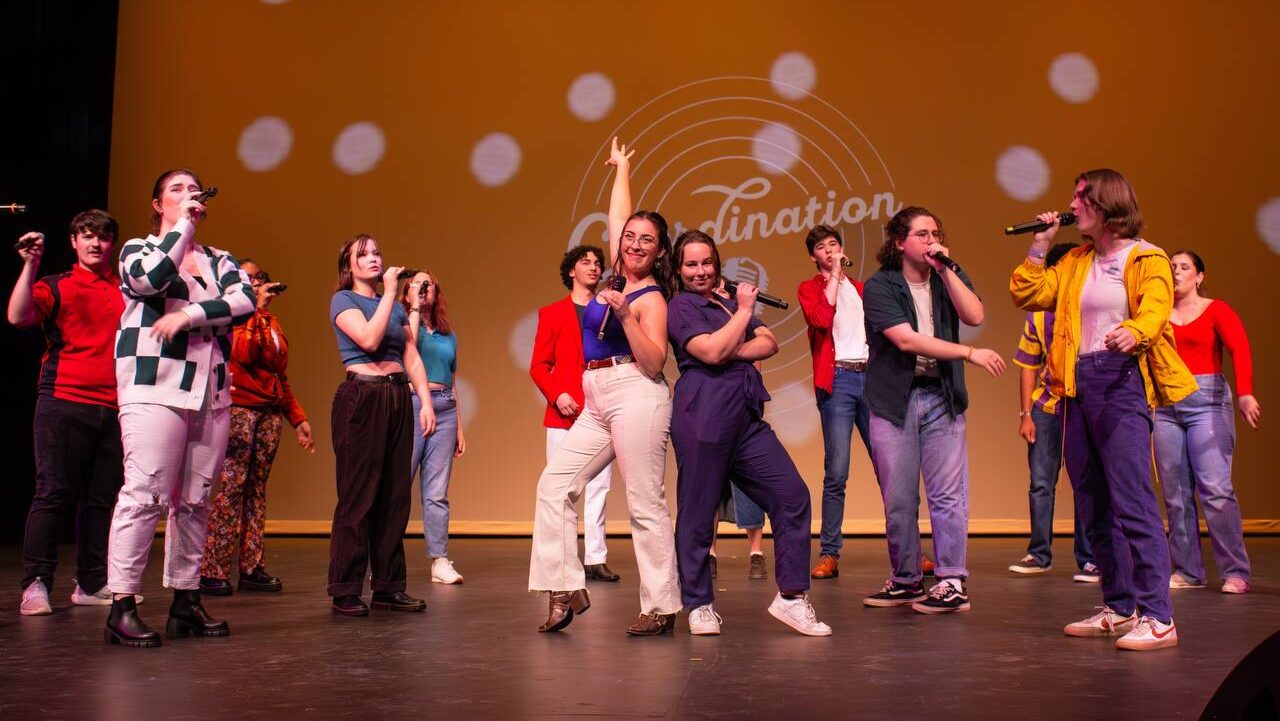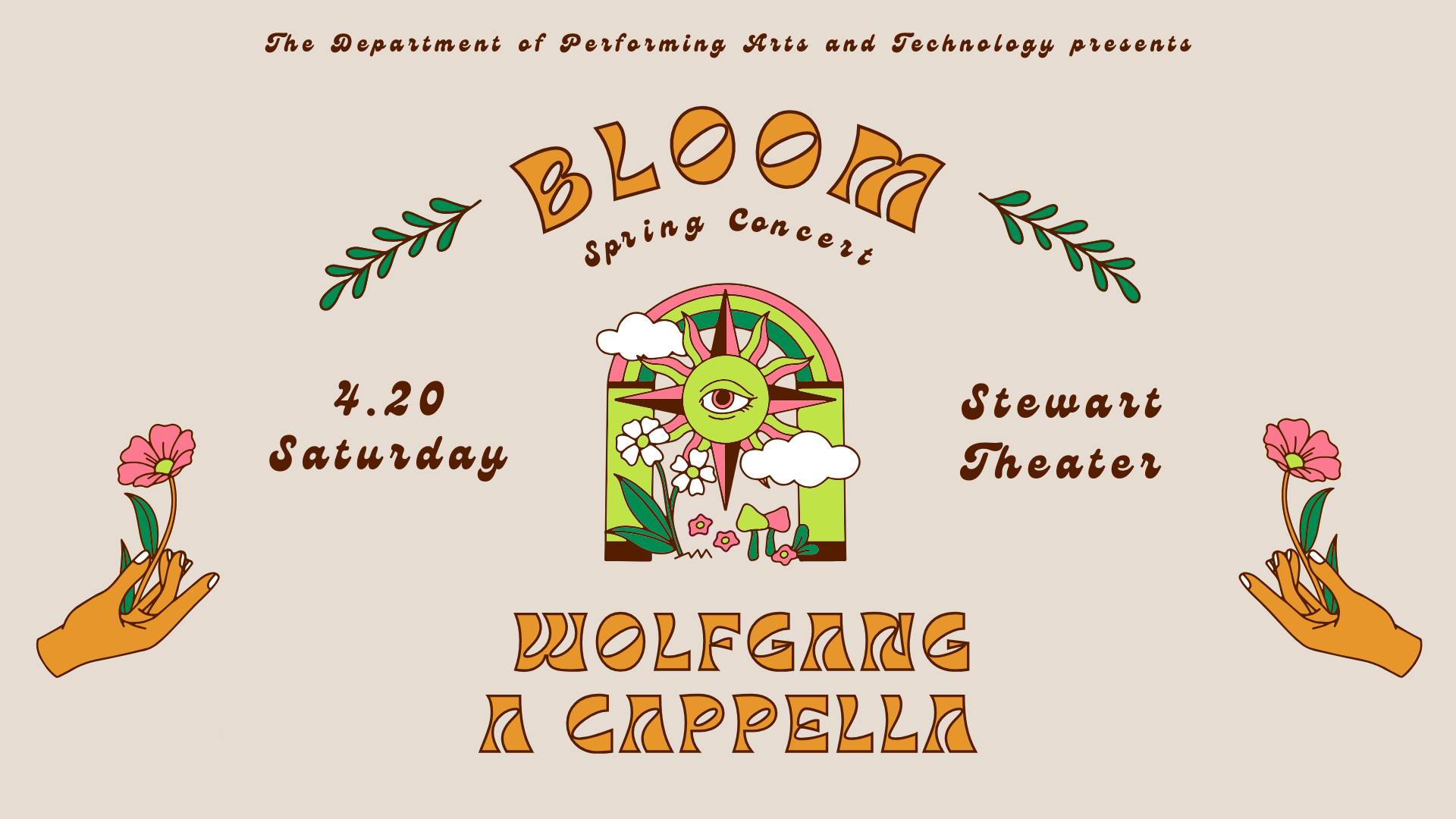Music performance minor embraces unconventional recital
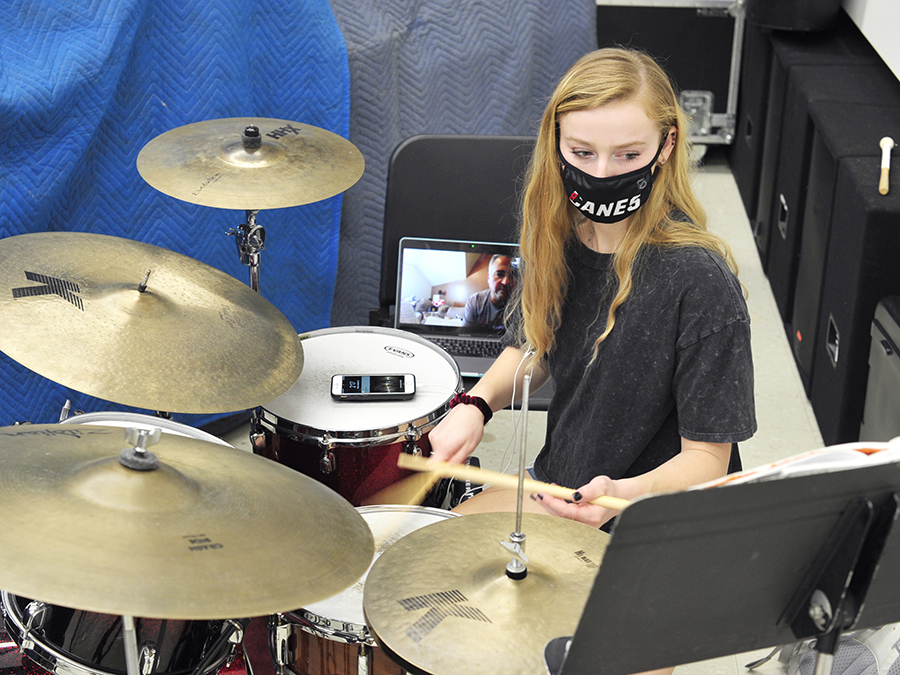
The culminating experience of a music performance minor’s five semesters of applied study is their final recital. After two years of private lessons and dedicated practice, they spend their last semester selecting and preparing 30 minutes of music that best represents their growth and aptitude on their instrument. But what happens to that recital when a pandemic forces your last semester and a half of lessons to move online, and makes it impossible to gather an audience in a concert hall?
When classes moved online in August, department head Daniel Monek offered the students enrolled in MUS 393 the option to defer their recital to the spring, or to move forward with it this semester as a virtual presentation. He encouraged them to think outside the box about how they can use the technology at their disposal to present their recital in a different way. Three affected students are preparing recorded recitals this semester which will be streamed online in December and the rest, including junior English major AnnE Ford, decided to defer.
But Ford, who works part-time for University Communications producing videos for NC State’s social media channels, isn’t waiting until spring to get started. As someone who struggles with stage fright, Ford had been working with both her applied percussion instructor, teaching professor Paul Garcia, and her ensemble directors to build her confidence to perform in front of an audience. But she was still very nervous about the idea of a solo recital until Monek encouraged her to consider a nontraditional format that plays to more than one of her strengths—a documentary-style video recital.
Now, she and Garcia are fully embracing the opportunity that the pandemic and online classes have provided to invest extra time into learning and preparation, and to get creative with the final product. “There are different types of recitals because there’s a lecture recital where you don’t necessarily perform the piece, but then there’s also the traditional recital where you are playing,” said Garcia, who also serves as the music department’s director of bands. “And so this is kind of a multimedia recital, which is right up her alley.”
Garcia said he doesn’t view the recital semester of applied lessons as a “teaching to the test” semester, meaning that recital preparation is not his only focus. He and Ford are continuing to work on technique and musicianship while also selecting and practicing the music for the recital. Ford is also beginning to outline the other video elements that she wants to include in the final presentation, which will premiere as a virtual event in April.
“It’s going to be me sitting down and talking about each of the pieces I’ve chosen, a little backstory on each of them, the process of choosing a song, learning the song, putting on final touches before the performance and then ideally the performance is going to be some sort of one-take video,” said Ford. “So I’ll sit down and play and then, after the fact, I’ll talk about how I think it went, my experience doing the one-take video as someone with stage fright, and hopefully in this video I’ll be able to include clips from my professors talking about working with me in different combos and groups, and Dr. Garcia obviously can put in some input on helping me in preparing for this too.”
As excited as Ford is for the chance to do a video recital, she said there are pros and cons to preparing for a recital during an online semester and a pandemic. She took to her remote percussion lessons fairly quickly when classes first moved online in March, because she was living at her parents’ house where she had reliable wifi access and her personal drum set. This semester presented different challenges since she chose to stay in Raleigh and is using the equipment in Price Music Center for practice, lessons and recording projects. The coronavirus safety measures restrict the times when the drum sets are available in order to ensure adequate time for the air to be cleaned in the rooms in between students, which means students have to plan well ahead of time when they want to use the equipment.
Many faculty teaching applied lessons this semester are using Zoom video calls so that they can observe and hear their students playing and provide feedback without being in the room with them. Garcia, who has four applied students this semester, said there are definite challenges to teaching percussion lessons without being in the room with his students.
“I don’t always get to see her hands, from a technical perspective, to help her make adjustments. So there’ll be times when I’m like, ‘Can you put me over here so I can see from the side? What’s going on with your hands?’ As opposed to me just being able to move around the room, I have to ask her to move me around the room and rig a setup. But those are things we can do. And we’re finding ways to overcome it and continue to move forward with that. It’s still different. But again, it’s the idea of, we’re going to take these Covid-19 lemons and keep making lemonade.”
Ford agreed that there are challenges involved in Zoom drum lessons, such as internet connection issues and not always being able to hear each other perfectly. “But as far as the recital,” she added, “I feel like I’m at an advantage because now I’m able to [approach] it in a way that reflects not only my own passions—because obviously I love talking to a camera, I love making videos—but also it allows me to do my recital in a way that makes me a lot less stressed and nervous about it.”
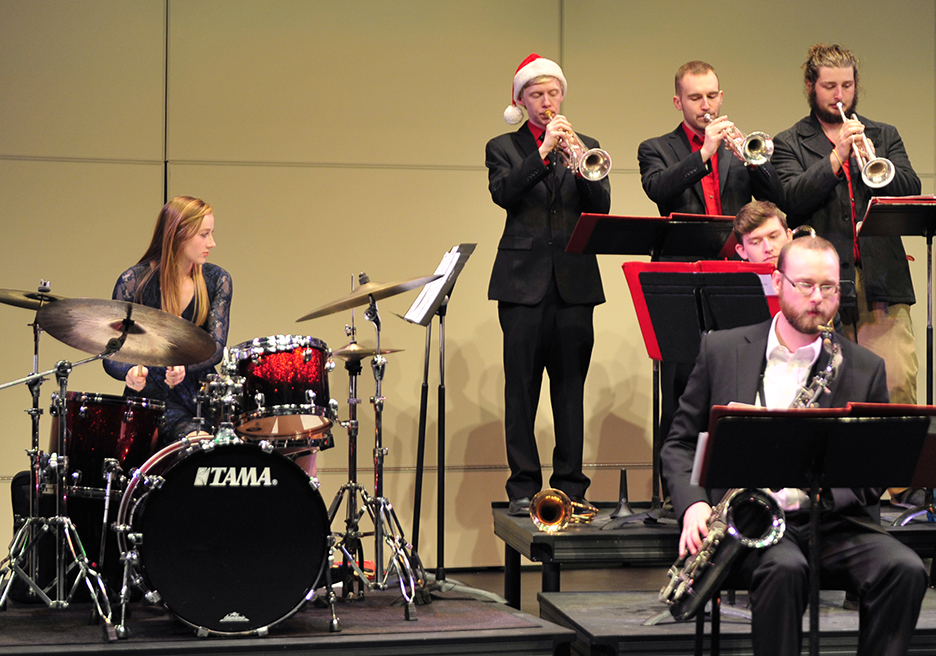
Despite her stage fright, participating in music has been the defining experience of Ford’s time at NC State. Though she was considering majoring in music and NC State does not offer a degree in music performance, visiting the Department of Music, meeting members of the faculty and learning about the music minor convinced her that NC State was the right fit.
“I really wanted to find a music program that felt like it was empowering to me, because I did already have stage fright at that point,” she said. “I need someone who’s going to be patient, and a supportive group of people. So I sat down and talked to Garcia immediately after I got accepted to NC State…and we just had a really great conversation and I felt like we would get along really well as a teacher and student.
“I think I went home that day knowing I was going to go to NC State.”
Medical studies have shown that music helps reduce stress and anxiety. Ford, like many students, has leaned on music even more during the pandemic. “It’s always been what I spend my time doing, even on Saturday mornings,” she said. “Freshman, sophomore year, all my friends are going to football games; I went to Price first thing in the morning. It’s always been my focus, but having so much free time in quarantine…I just spent all my time drumming and it really got me through. And even now, I have no other reason to go to campus but I go to campus once or twice a day to go play drums in Price. So it’s really kept me sane through this whole thing.”
The extra energy that Ford is pouring into practicing this year has given her a boost in confidence as she prepares for her recital and works on recording projects with her current ensemble, the NC State Jazz Lab Band (MUS 142). You can hear Ford and her classmates on their remote recording of Duke Ellington’s “Satin Doll” on our SoundCloud page.
Part two of this story about Ford’s recital preparation and details of how you can watch her recital online will be published in the spring digital issue of Wolf Tones magazine.
